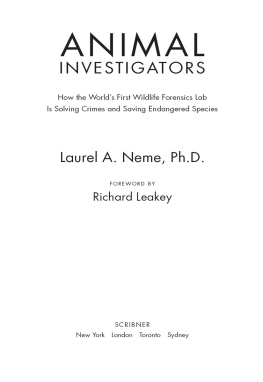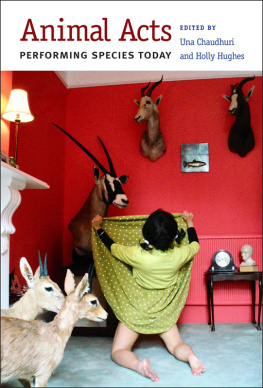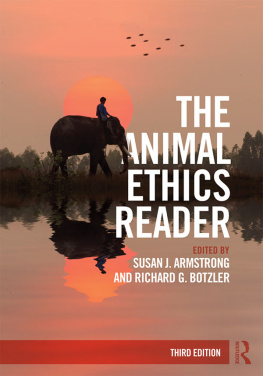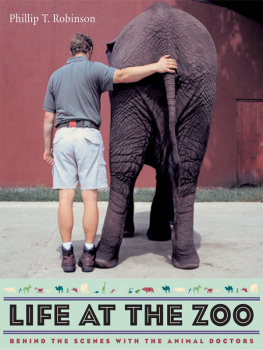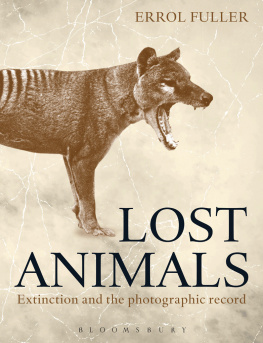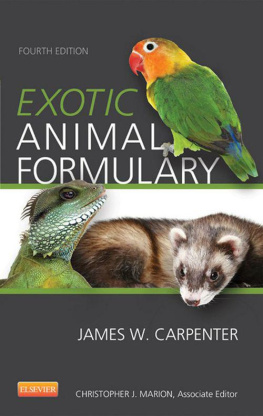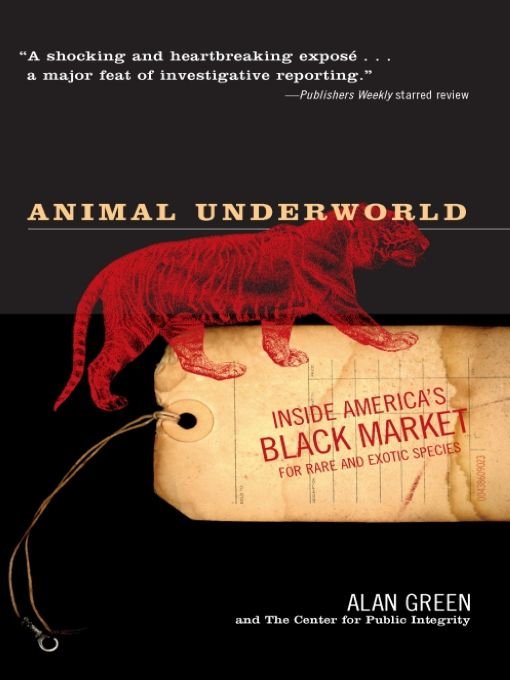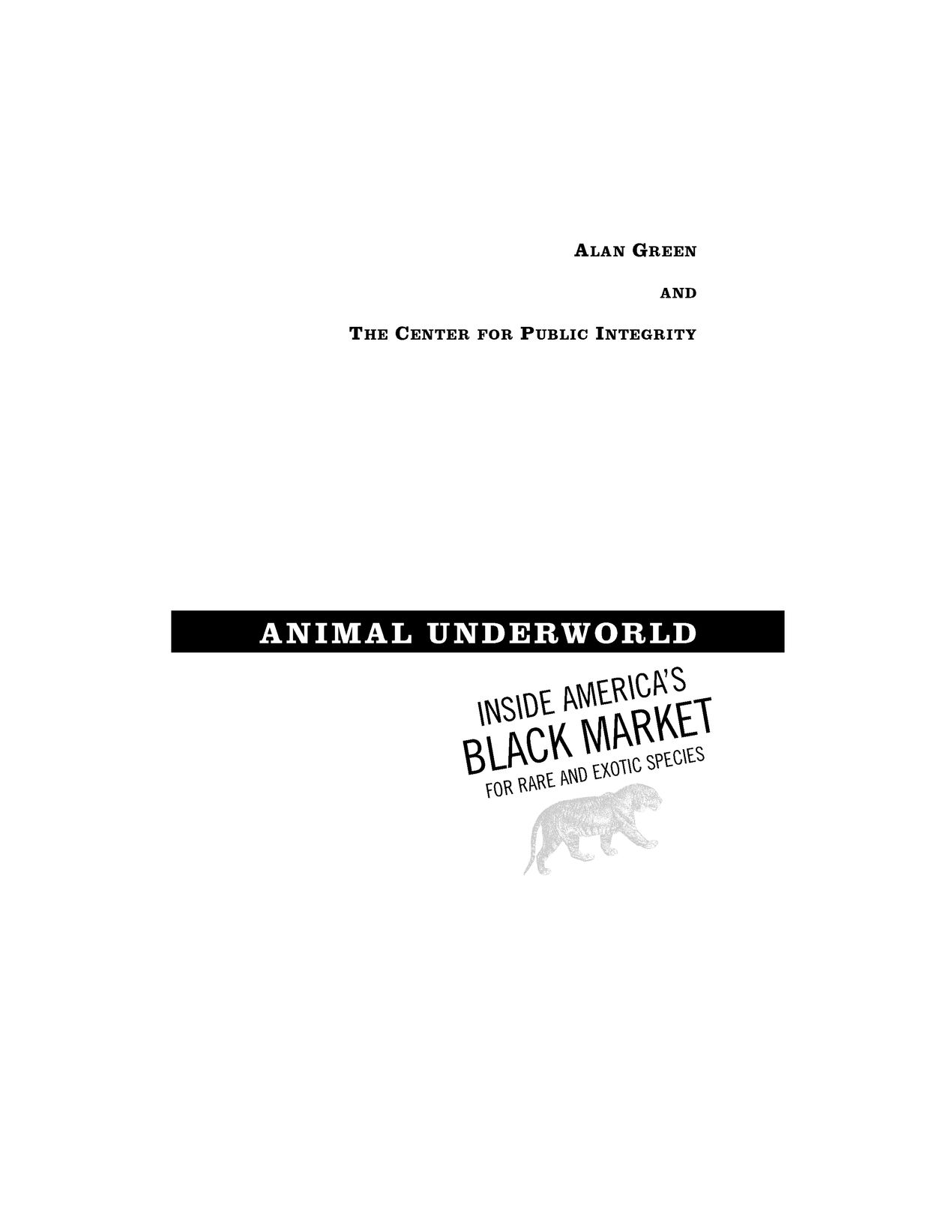Table of Contents
PUBLICAFFAIRS NEW YORK
In memory of my mother
PROLOGUE
Among the animals on display at Six Flags Wild Safari, in Jackson, New Jersey, are addax, rare antelope whose long, thin, spiraling horns slant up and back like an ornate pair of tight, mirror-image S curves. The four-foot-tall mammals, which typically weigh nearly three hundred pounds, are much better suited to life on their native North African Sahara Desert than this theme parks grassland: In summer, their grayish coats turn heat-reflecting off-white. Their large, splayed hooves allow them to easily traverse the sand dunes. And addax can go without drinking, instead fulfilling their need for fresh water from the moisture in the shrubs and grasses that constitute their diet.
Yet the addax has been pushed to near extinction in such countries as Chad, Niger, and Mali. For starters, the antelopes have been indiscriminately overhunted, often by poachers firing automatic weapons from motorized vehicles. The addax population has also been ravaged by severe and prolonged droughts, habitat loss from livestock grazing, and the stress brought on by throngs of overzealous and aggressive tourists. Whats more, military troops have used the hapless animals for target practice. As a result, its estimated that only two hundred to three hundred addax remain in the wilda number that has prompted the two major wildlife-monitoring agencies outside the United States to conclude the obvious: The species is in danger of disappearing.
That leaves the fate of the addax largely in the hands of zoos, wildlife preserves, and theme parks such as Wild Safari, whose fifteen addax live in a fenced-in area dubbed the African Plains. The placid antelopes, seemingly unfazed by the daily parade of vehicles, share their territory with Barbary sheep, East African crowned cranes, and white-tailed gnus; across the cattle grids, giraffes, marabou storks, and a dozen other species amble over their designated turf, some idling long enough in the threelane service road to bring the crush of summer traffic to a standstill.
The gates are shut the first week of November, when the three-hundred-fifty-acre drive-through park closes for the season. Because many of the thousand-plus animals at Six Flags Wild Safarithe desert-dwelling addax, among themprobably couldnt make it through New Jerseys harsh winters, they are soon relocated to heated buildings. Its a process that requires great care.
Such concern for animal welfare is characteristic of Time Warner, Inc., which managed Wild Safari from 1992 to April 1, 1998, when the entertainment company sold its interest in the Six Flags chain to Premier Parks Inc., a large theme-park operator with headquarters in Oklahoma City. Time Warners Volunteer Project Grants, which are designed to support community-service work, have gone, for example, to an animal-rescue organizations newsletter in Burbank, California. The companys scholarship giving has supported New York Universitys Science and Environmental Writing Program. HBO, Time Warners pay-television service, produced the widely acclaimed To Love or Kill: Man Versus Animal, a chilling documentary about societys heinous treatment of animals.
Ted Turner, Time Warners vice chairman, has his own distinguished record regarding animals and their environments. The media and entertainment mogul, whose fortunes have been built on such properties as Cable News Network and the Atlanta Braves, is the Nature Conservancys single-biggest individual donor of conservation easements, having set aside more than 148,000 acres of land he owns to prevent development and ensure that sufficient habitat is left for wildlife. Turners Atlanta-based superstation, WTBS, has long been home to the popular National Geographic Explorer series. The Turner Foundation has funded such animal-friendly organizations as Earth Island Institute, whose projects include campaigns to save whale and dolphin habitats, sea-turtle nesting beaches, and San Francisco Bays harbor seals. And the family foundation also launched the Turner Endangered Species Fund, which assists private landowners in conserving desert bighorn sheep, Mexican wolves, and other imperiled species.
It should be no surprise, then, that the animals at Wild Safari would have been cared for so well under the management of Time Warnerthat they would be moved en masse from their summertime habitat and so carefully shielded from the threats of harsher weather. This is just the sort of commitment that has helped Wild Safari earn its standing as a valued resource for wildlife preservation.
But with the relocation to winter quarters comes a parallel migrationa one-way exile that unceremoniously removes dozens, sometimes hundreds, of animals from the drive-through park. In years past, most of them have been entrusted to Henry Hampton, a North Carolina broker whos hauled away Wild Safaris camels, zebras, and Ankole cattle, as well as llamas, fallow deer, and white-bearded gnus. The park has also sent herds of blackbuck antelope to Hampton, along with North American black bears and Cameroon goats, eland, aoudads, lechwes, Beisa oryx, and dama gazelles. One year, Hampton hauled away nearly two hundred of Wild Safaris animals.
Hampton, whose business is transporting and brokering animals, is licensed by the U.S. Department of Agriculture to ply his trade. His facilities are inspected annually to ensure compliance with the federal Animal Welfare Act. His clients include the Miami MetroZoo, Floridas Lion Country Safari (which has even given Hampton its newborn lions), and the White Oak Conservation Center, a respected wildlife conservation facility whose animals come by way of the Los Angeles Zoo and other well-known institutions. In short, who better than Hampton to find suitable homes for surplus animals?
As it turns out, however, this roundup has nothing to do with conservation of species. Instead, its merely the first leg of an arcane and largely invisible process that shunts Wild Safaris animals from place to place, laundering them into obscurity until theyre deposited with auctioneers, backyard hobbyists, or dealers like Steven Patrick Forest, who runs an exotic-animal hunting operation on his Texas ranch that boasts fifty species of game. The right fee brings you the chance to bag a Nubian ibex or four-horned sheep, a yak, an eland, or a Persian gazelle. For $2,250, you can pick off an addax at the Forest Ranch, maybe even one that came from Wild Safari. Henry Hampton trucked three of its young males to the Forest Ranch in 1996. But Wild Safaris population of the disappearing antelope was hardly affected, because spring always brings babies, just as autumn inevitably brings the North Carolina trucker to quietly haul them away.
INTRODUCTION
There was nothing particularly unusual about the pickup leaving Reston Animal Park on a frigid Thursday morning in November 1995. One of the Virginia petting zoos longtime employees was at the wheel of the truck, attached to which was a twenty-foot cattle trailer. The hulking worker, whod completed his preparations long before sunrise, sometimes hauled goats, monkeys, and other animals to schools and birthday parties in Reston and other well-to-do suburbs of Washington, D.C. The mobile menagerie was a service that the zoos owners liked to promote, a supplemental stream of income that, they claimed, helped them provide exemplary care to their collection of animals.








